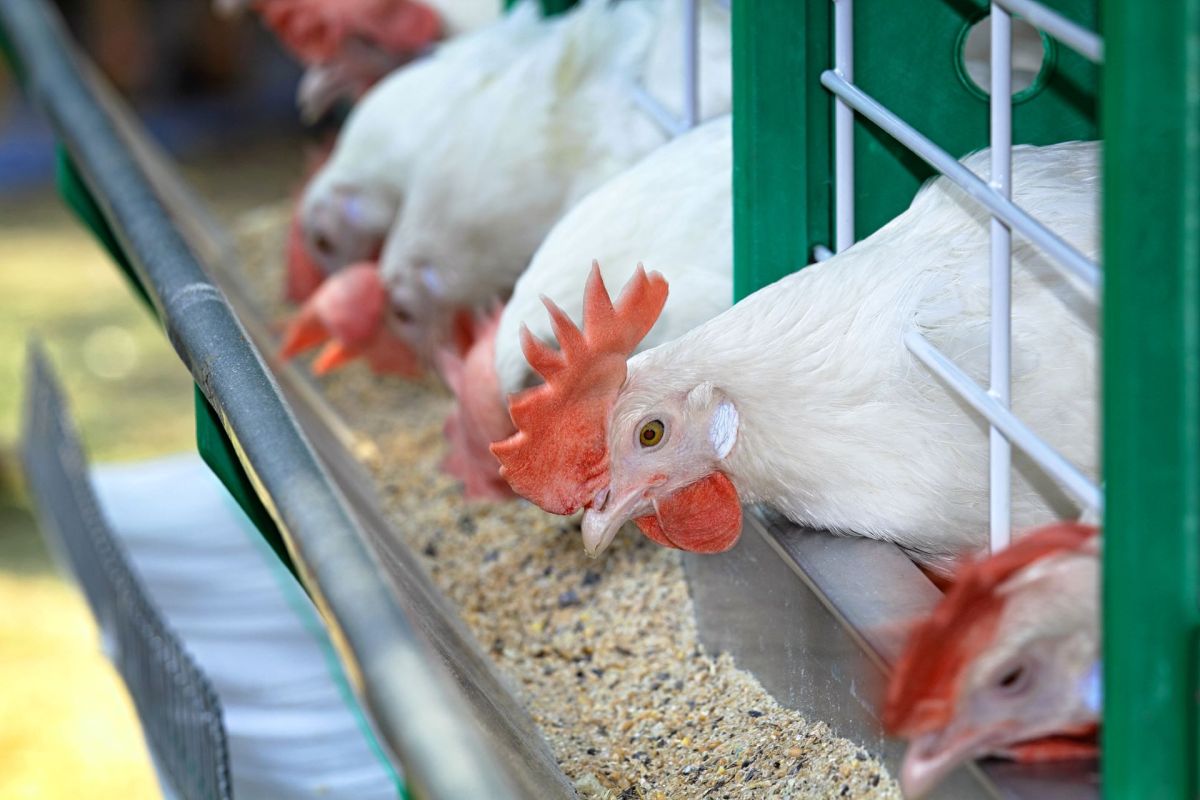Before there was the chicken and the egg, there was chicken food. And feeding chickens today comes with a high price tag and carbon footprint.
Researchers at Australia's University of New England are attempting to address that by creating a chicken feed that could save the country's poultry industry close to $500 million annually while also reducing planet-warming pollution by 5%.
The research, created in partnership with Food Recycle Ltd. and Poultry Hub Australia, examined the impacts of feeding 24- to 34-week-old laying hens a recycled diet made with discarded food scraps from breweries, nursing homes, and other community organizations.
The food was processed and turned into powdered chicken feed using Food Recycle Limited's technology. The researchers found that the new feed did not impact the laying quality of the eggs or the chickens' health and well-being.
The lion's share of poultry production costs are embedded in feed. An article published about the research by Phys.org claims that 65% of poultry production costs come from feed in Australia. Meanwhile, unrelated food waste in the country's landfills continues to pile up and release planet-warming methane into the atmosphere.
Diverting much of that food waste, which would otherwise go to the landfills, cuts the amount of money spent and emissions produced by feed companies while also reducing the food circulating through the waste stream.
"Recycling food waste into poultry feed will help farmers to save on feed costs, generate significant improvements in feed efficiency, reduce the environmental impact of poultry production, and assist the Australian poultry industry to meet the growing demand for more sustainable and low-carbon poultry production," reported researcher Thi Hiep Dao.
The partnership estimates that waste-based feed will become globally available in more than 20 countries. Chief executive officer of Food Recycle Ltd., Norm Boyle, shared the news: "We anticipate that within five years, recycled food waste feed will be the go-to solution globally for the poultry, pig, and aquaculture industries."
Join our free newsletter for easy tips to save more, waste less, and help yourself while helping the planet.








